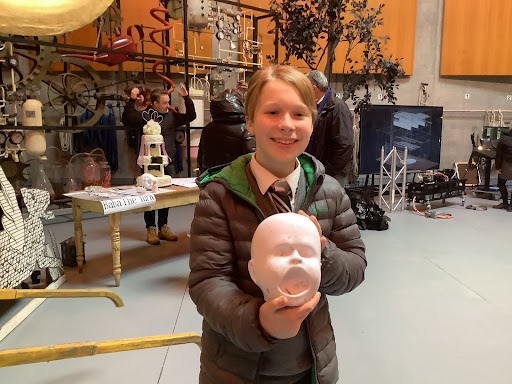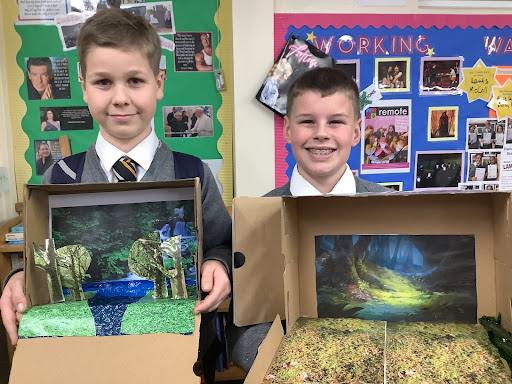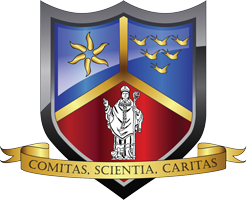Drama
Meet the department
- Ms Whelan
Introduction
The Drama curriculum is designed to develop a wealth of skills which are vital for any career. All learning in drama happens within a group environment enabling pupils to work collaboratively, exchanging and discussing complex ideas with others. The performance aspect of drama is vital for building confidence, self-esteem and presentation skills which are a necessity for future years. In addition, pupils are taught to constantly evaluate and improve their work – embedding an ethos of reflection, challenge and progress. The study of drama is not solely for the purpose of following a career in the industry, but more importantly to support the development of the imagination, social skills, self-belief and commitment to a creative process. For these reasons, commercial employers comment that they look very favourably on applications from those who have studied drama.
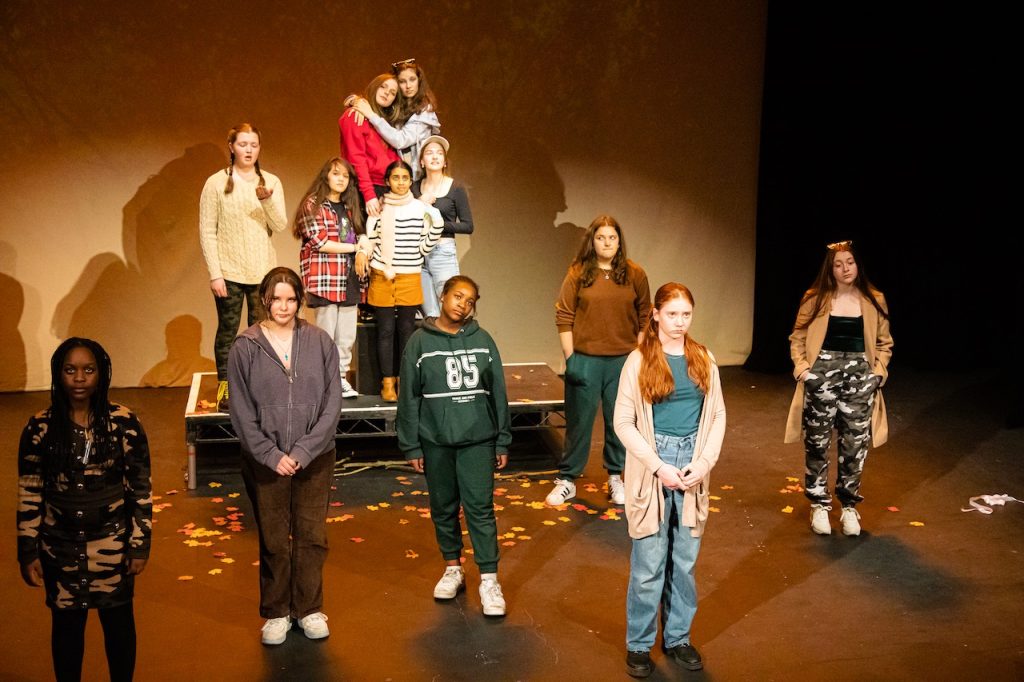
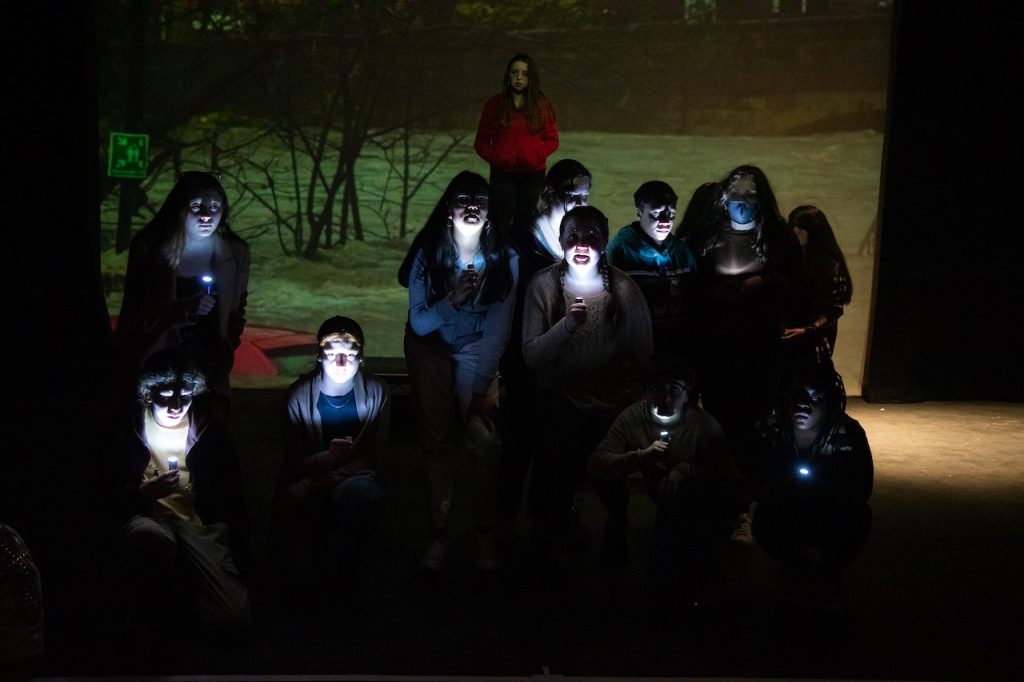
GCSE Drama Exam Results
2019
93% 4+
86% 5+
29% 7+
2020
100% 4+
80% 5+
47% 7+
2021:
100% 5+
66% 7+
2022:
33% 7+
75% 5+
92% 4+
2023:
100% 4+
92% 5+
38% 7+
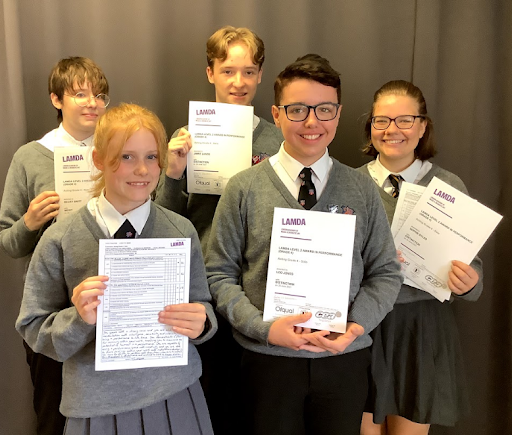
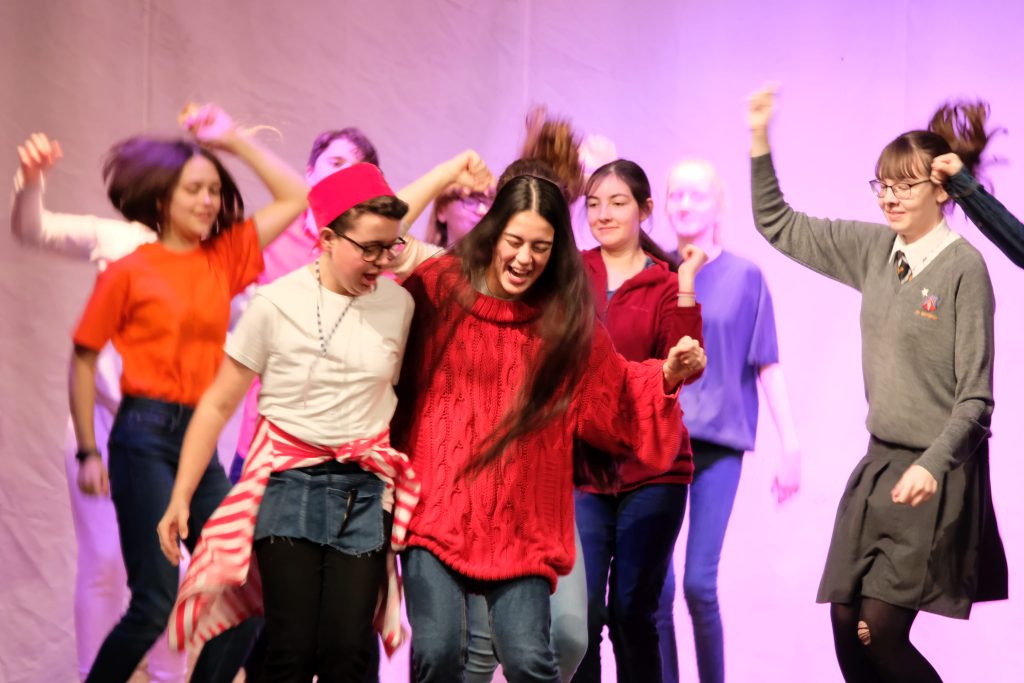
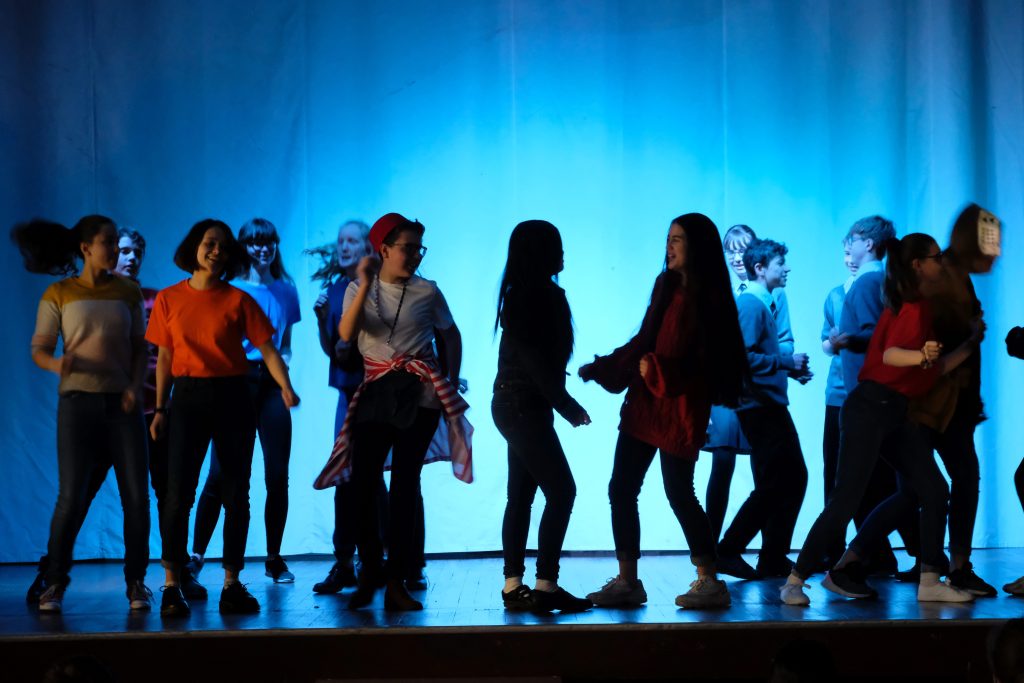
Key Stage 3 curriculum
Drama learning in Years 7 and 8 is based on developing basic Drama skills and practical exploration of ideas and themes, as well as teamwork skills and how to evaluate practical work. Pupils are introduced to a range of different styles and genres. Units of work include Introduction to Drama, Ancient Greek Theatre, Shakespeare, Building Tension for an Audience, Documentary Theatre and exploring modern play texts. Pupils are taught on a rotation with dance in Years 7 and 8.
In Year 9 pupils have the ability to choose their subjects of study. As part of this mini-option process, pupils are offered Drama. In their weekly double Drama lesson, pupils are able to develop performance and group work skills in much more depth. We explore more challenging texts and sophisticated devising techniques and pupils regularly perform both scripted work and pieces of Drama they have devised for themselves. Year 9 Drama work is geared towards giving pupils a clear understanding of what studying Drama at GCSE would be like, and pupils will learn terminology and writing skills that are used when studying Drama at a higher level.
Year 9 pupils are also offered Performing Arts which includes music, dance and drama taught on rotation. Pupils study musical theatre and the course involves pupils creating their own mini-musical. Performing Arts pupils will develop a portfolio of evidence as the course progresses. This gives pupils a clear idea of what studying Performing Arts BTEC would be like at Key Stage 4.
Key Stage 4 curriculum
The Key Stage Four curriculum follows the 2 year AQA GCSE specification which consists of 60% coursework and 40% written exam. This GCSE course is an excellent way for pupils to gain understanding and practical experience of how theatre is made and performed. There is a focus on acting, but pupils also have the opportunity to develop technical skills and specialise in areas such as lighting, set and costume design. Pupils are assessed through a mixture of written and practical work. Pupils will get the opportunity to attend workshops with outside practitioners to enhance their learning. This has included workshops from exciting theatre companies such as ‘Splendid’, ‘Stage Ed’ and ‘Paper Birds’ in recent years. In addition all pupils will attend theatre trips as part of their course, both locally and in the West End.
Component 1 – Written Exam (40%) We study the set play Blood Brothers in depth in preparation for the written exam, both practically and in written lessons. We also go to see live theatre performances; locally and in the West End, and as another aspect of the exam pupils write a live theatre review. Pupils also gain an understanding of the job roles that exist within a theatre, and different types of staging.
Component 2 – Devised Piece (40%) In preparation for this part of the course, pupils learn about different styles and genres of theatre. They then go on to develop their own original piece of drama, including lights, costumes and sound effects, with the opportunity to perform on the stage, or design and operate lighting or sound. Pupils then create a logbook, detailing their devising process and evaluating their performance.
Component 3 – Scripted Performance (20%) Pupils develop and perform two scenes from a play for an external examiner, who visits the school in Year 11. Again, there is an opportunity for pupils to engage with technical aspects of performance instead of acting at this point if they wish.
How pupils will be assessed
In KS3 pupils are assessed formatively and summatively using the school wide criteria of Emerging, Developing, Secure and Excelling. and At KS4 pupils are set aspirational targets based on internal data. Pupils are expected to achieve this grade and will be supported to do so. Work is marked using GCSE 1-9 grades at KS4. Past paper questions and practical performances are marked according to exam board mark schemes.
Extra-curricular Activities
The drama department provides a wide range of enrichment opportunities for all years including drama clubs at lunchtimes and after school; theatre trips; practical workshops run by visiting professionals; performance opportunities within liturgy; participation in local and national drama festivals and the annual summer production which is open to all (and a highlight of the school year!)
LAMDA lessons have now been running for 3 years, and are hugely popular. LAMDA (London Academy of Dramatic Art) exams are acting and public speaking exams, and are the drama equivalent of musical instrument exams. These are great for improving performance skills and confidence, as well as giving pupils recognition for their acting skills with a widely recognised and well thought of qualification.
75 pupils took LAMDA exams last year with the majority achieving the highest grade of ‘Distinction’.
Tech Theatre Club is now offered to pupils, which provides an opportunity for pupils to learn about wider roles in theatre such as lighting, sound, costume and set design. Last Year Tech Theatre Club pupils went on a very exciting trip to tour backstage at Glyndebourne, and pupils from this club have supported school shows and performances in backstage and technical roles.
We also go on theatre trips throughout the year. Recent trips have included ‘The Play That Goes Wrong’, ‘The Curious Incident of the Dog in the Night Time’, ‘Matilda’ the musical and ‘Blood Brothers’.
